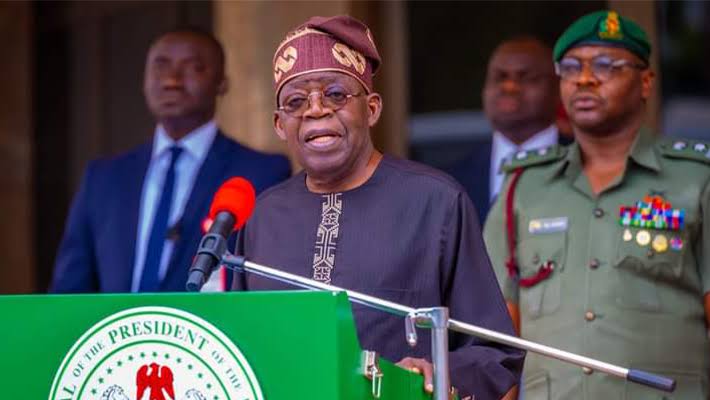President Bola Tinubu has asked the Federal High Court in Abuja to dismiss a suit that is seeking to compel the National Assembly to initiate impeachment proceedings against him over alleged rights violations.
The suit, marked: FHC/ABJ/CS/1334/2024, was brought before the court by a legal practitioner, Mr. Olukoya Ogungbeje.

The plaintiff, in his suit that has the Attorney-General of the Federation and Minister of Justice, Prince Lateef Fagbemi, SAN, as the 2nd defendant, is seeking six principal reliefs from the court.
He urged the court to declare that alleged persistent suppression of peaceful protests organised by Nigerian citizens, by the President Tinubu-led administration, amounts to an impeachable offence.
For instance, the plaintiff alleged that the government had, between August 1 and 10, 2024, violently clamped down on peaceful protesters across the federation, an action he argued constituted misconduct and a ground for Tinubu’s impeachment from office.
The plaintiff maintained that section 143 of the 1999 Constitution, as amended, empowered the NASS to set machinery in motion for President Tinubu’s impeachment.
However, in a joint preliminary objection they filed against the suit, both President Tinubu and the AGF queried the locus standi (legal right) of the plaintiff to institute the action.
Aside from praying the court to dismiss the suit for being incompetent, the defendants insisted that the action failed to disclose any reasonable cause of action to warrant an exercise of judicial discretion in his favour.
In the process, they filed through a team of lawyers led by Mr. Sanusi Musa, SAN; President Tinubu; and AGF further challenged the jurisdiction of the court to hear the matter.
More so, the defendants applied for “an order striking out this suit for being incompetent as this suit is not initiated by due process of law having been initiated under a wrong procedure.”
Adducin 18 reasons why the case should be terminated, President Tinubu and the AGF argued that the plaintiff filed the action on behalf of faceless citizens, noting that he did not disclose the persons whose rights were allegedly violated.
The defendants argued that by the provision of Section 46 of the 1999 Constitution, as amended, only the person whose right was breached has the right to file an action before the court to seek redress.
According to the defendants, “Pursuant to the provision of Section 46 (3), the Chief Justice of Nigeria has {brought into being the Fundamental Rights (Enforcement Procedure) Rules, 2009, which makes ample provision of the procedure to follow in filing an action with respect to a breach of the Fundamental Rights of any Nigerian.”
They argued that the plaintiff’s questions two and three for determination were in respect of the alleged breach of the 1999 Constitution by the 1st defendant (President Tinubu) vis-a-vis Section 143 of the said constitution.
The defendants maintained that the plaintiff failed to disclose any of his rights that were breached.







